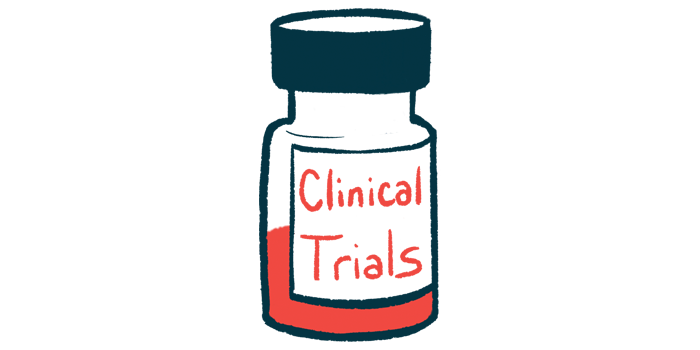Parkinson’s therapy risvodetinib shows good safety profile in trial
Phase 1 study tested oral medicine in older patients and healthy volunteers

Risvodetinib, an experimental therapy that Inhibikase Therapeutics is developing for Parkinson’s disease, was well tolerated both by healthy volunteers and Parkinson’s patients in a Phase 1 clinical trial.
That’s according to the full results from the Inhibikase-funded work, detailed in a study titled “A Phase I, Randomized, SAD, MAD, and PK Study of Risvodetinib in Older Adults and Parkinson’s Disease,” which was published in the open-access Journal of Parkinson’s Disease.
“Our publication in the Journal of Parkinson’s Disease highlights our early clinical work with risvo [risvodetinib],” Milton Werner, PhD, president and CEO of Inhibikase, said in a company press release.
“In Phase 1 studies, risvo was shown to have a favorable safety profile that was well tolerated by older or elderly healthy subjects and by patients with Parkinson’s disease,” Werner said.
Phase 2 trial of Parkinson’s therapy candidate already underway in US
Inhibikase is now running a Phase 2 trial, dubbed 201, that’s testing risvodetinib against a placebo in untreated adults with Parkinson’s. The new study (NCT05424276), which aims to enroll 120 participants, ages 30 to 80, is recruiting at more than 20 sites across the U.S.
The company says the results of this double-blind trial, in which neither researchers nor participants know the actually treatment patients are given, could be available as soon as this year.
“As we look ahead, we are rapidly advancing our 201 trial in untreated [Parkinson’s disease] patients and look forward to reporting topline results, possibly as early as the second half of 2024 depending on the enrollment date of the last trial participant,” Werner said.
Risvodetinib, also known as IkT-148009, is designed to block the activity of Abelson tyrosine kinase (c-Abl), a protein implicated in the normal development of neural tissue. Blocking c-Abl is expected to reduce the death of dopamine-making brain cells that drives Parkinson’s.
“Recently published work by us and our collaborators have pointed to the c-Abl kinase as having an important role in the disease process,” Werner said.
The Phase 1 trial (NCT04350177) was conducted with the main goals of evaluating risvodetinib’s safety profile and pharmacological properties. It was done in three parts.
In the first part, healthy volunteers were given a single dose of risvodetinib (from 12.5 to 325 mg) or a placebo. Then in the second part, volunteers received multiple doses of the experimental therapy (25 to 200 mg) or the placebo for seven days. A total of 94 healthy volunteers participated in these first parts of the trial.
In the third part, 14 people with Parkinson’s received risvodetinib at doses from 50 to 100 mg, or a placebo, daily for seven days.
Risvodetinib had a favorable side effect profile following single or multiple doses given once daily for up to 7 days.
Across all three parts of the study, there weren’t any serious safety issues noted with risvodetinib. A total of 11 safety-related events were judged as likely related to the drug; all mild in severity. Specific events included muscle pain, diarrhea, and constipation.
“Risvodetinib had a favorable side effect profile following single or multiple doses given once daily for up to 7 days,” the researchers concluded, though they stressed that additional data are needed to assess the therapy’s safety profile over the longer term.
The team highlighted that Parkinson’s patients in this trial were allowed to continue using other medications. As such, they said the fact that no serious safety problems were noted suggests that risvodetinib “could be compatible with other common treatments in this patient population.”
The study looked for the medication in the cerebrospinal fluid, the liquid found in and around the brain and the spinal cord, in six participants with or without Parkinson’s. The results showed that risvodetinib was persistently present in the central nervous system, meaning that the therapy crossed the protective blood-brain barrier in the body.
In addition, pharmacological data from the trial, cross-referenced against data from animal studies, suggested that risvodetinib at doses between 50 and 200 mg per day are likely to be effective for Parkinson’s. These findings helped inform design of the ongoing Phase 2 trial, which is testing risvodetinib at doses of 50, 100, and 200 mg/day.







